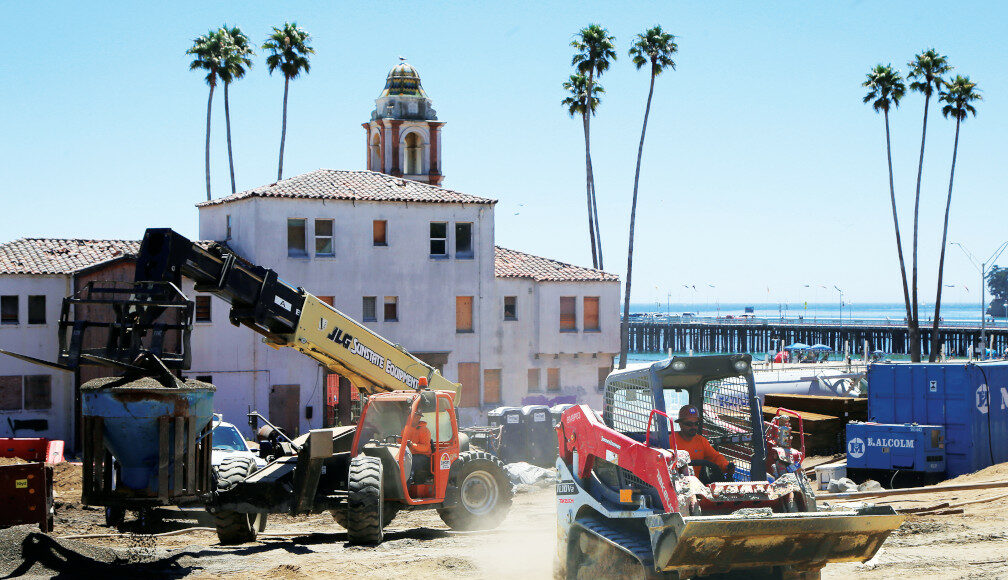Roughly one month after a sales tax increase failed to pass by a mere 50 votes, the Santa Cruz City Council approved plans to once again ask voters to increase taxes—this time on stays at hotels and short-term rentals—in order to provide the city with additional revenue officials say it needs to offset a looming budget deficit.
In a unanimous vote at its Aug. 9 meeting, the council placed a transient occupancy tax (TOT) hike on the Nov. 8 ballot. If approved, patrons staying at hotels, motels, inns and other commercial lodging facilities will see the TOT percentage increase from 11% to 12%. Taxes for those staying in short-term rentals would rise three percentage points to 14%.
The city has not increased its TOT rates since 2013.
The city says the increase could bring in around $1.38 million annually to the general fund. It would go into effect at the start of the new year if approved by voters.
It will cost the city between $91,402 and $146,244 to place the item on the ballot.
The measure, named Measure P, was brought forth by the council’s ad-hoc budget and revenue committee spearheaded by Mayor Sonja Brunner, Vice-Mayor Martine Watkins and councilmember Sandy Brown. Brunner said that the committee saw the tax as a way to use the city’s large tourism industry as a revenue source to fund city services.
The new TOT rates would bring the city in alignment with the County of Santa Cruz, which in the June election received approval from voters to increase the rates for hotels and short-term rentals in the unincorporated parts of the county.
The fact that the county’s increase was overwhelmingly approved—roughly 70% of voters elected to increase the TOT rates—was a factor in the committee’s decision to bring the measure before the council, Brunner said.
“It creates a fair and leveled playing field across the region,” Brunner said. “It also helps to ensure that visitors and tourists pay their fair share for city services.”
Brown said that the city had previously weighed bringing a TOT increase before voters in 2019, but backed off the next year because of the pandemic.
“It’s been 10 years since the TOT has been raised,” Brown said. “Given the challenges that the hotel industry has faced, and that history, this is a very measured proposal moving forward.”
Santa Cruz County Chamber of Commerce CEO Casey Beyer was one of four people who spoke about the measure at the meeting. He said that while the chamber does not oppose the increase, they do question the timing.
“There’s a need to get additional revenue streams, we get that. We understand that the city has to find revenue to provide city services that the community wants,” he said. “My [question is] did you do any outreach to the hotel industry before making this decision, and, if not, I would encourage you to before you put this on the ballot that you have that engagement … It’s critically important that they be a part of the conversation.”
Brunner said that she, along with city staff, spoke to “a couple” of hoteliers, but admitted that outreach to the industry leading up to the Aug. 9 decision was limited.
City Manager Matt Huffaker and Economic Development Director Bonnie Lipscomb both said the timeline of bringing this tax increase forward has been atypical.
“This has been a condensed time frame,” Huffaker said. “We were waiting for final certification of the Measure F results, weighing the implications of that outcome and what would make the most sense for the city moving forward based on a number of variables. That didn’t lend itself to having the more robust dialogue that we would typically have. But, of course, we’re open to continuing those conversations.”
The measure will be one of three that will go before Santa Cruz voters in November. Measure N proposes levying a tax on residential properties that are in use for less than 120 days within a calendar year. Measure O, meanwhile, will ask voters to decide whether the city should proceed with plans to redevelop the parking lot on the corner of Cathcart and Cedar streets into a new library complex that would include at least 50 affordable housing units and a parking garage.













